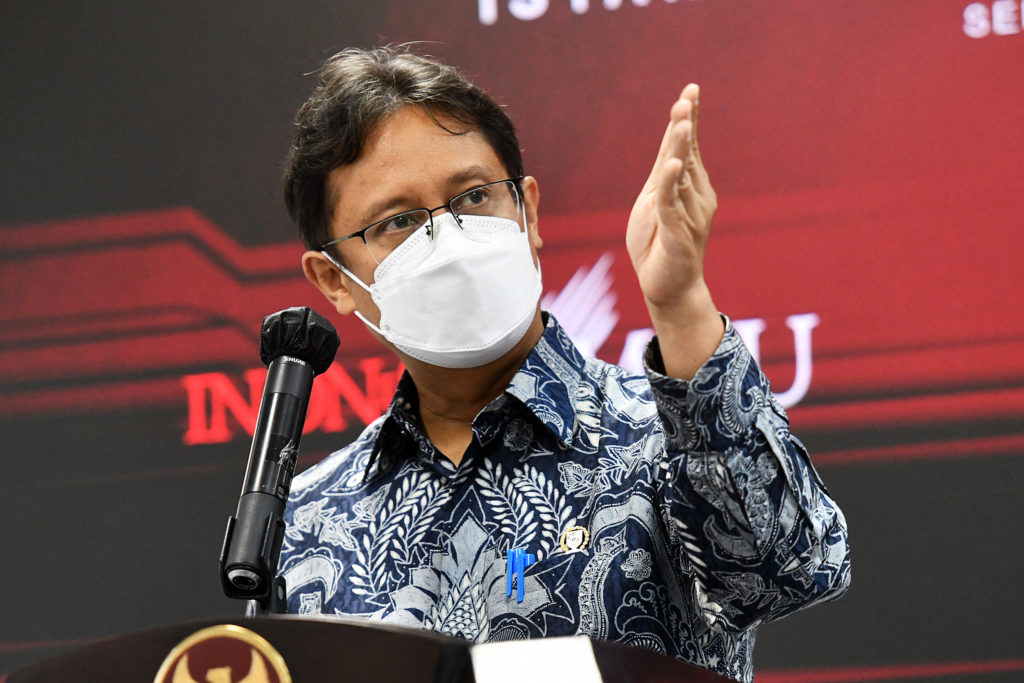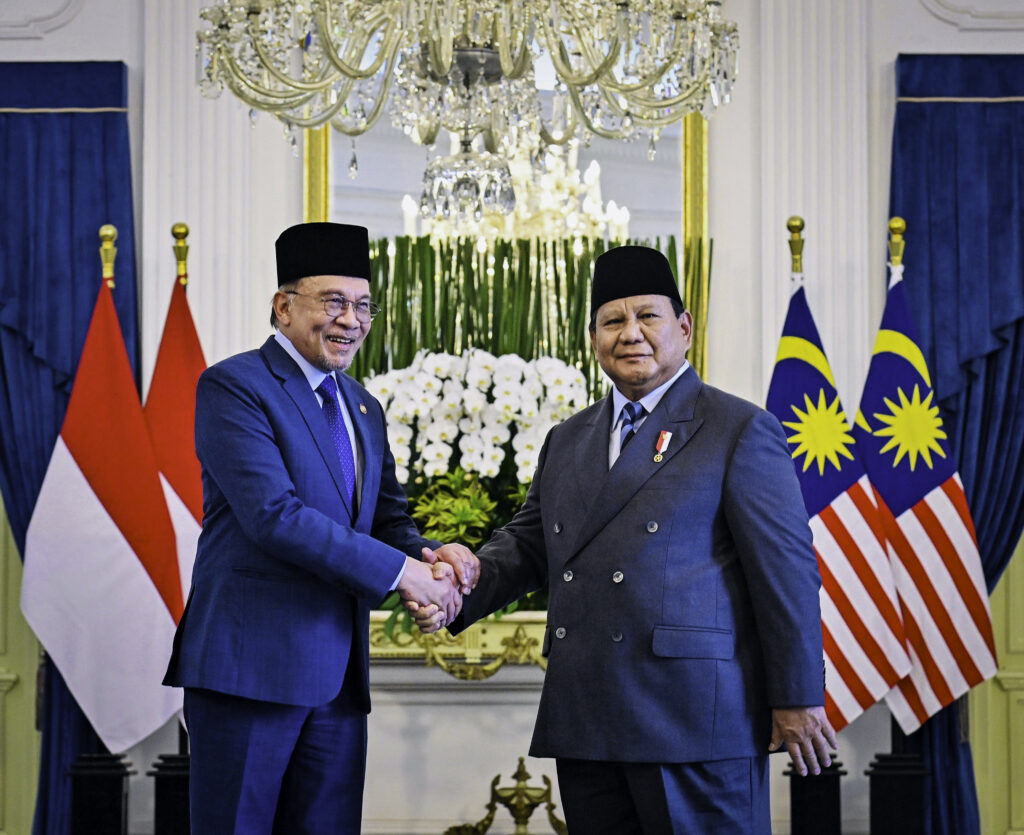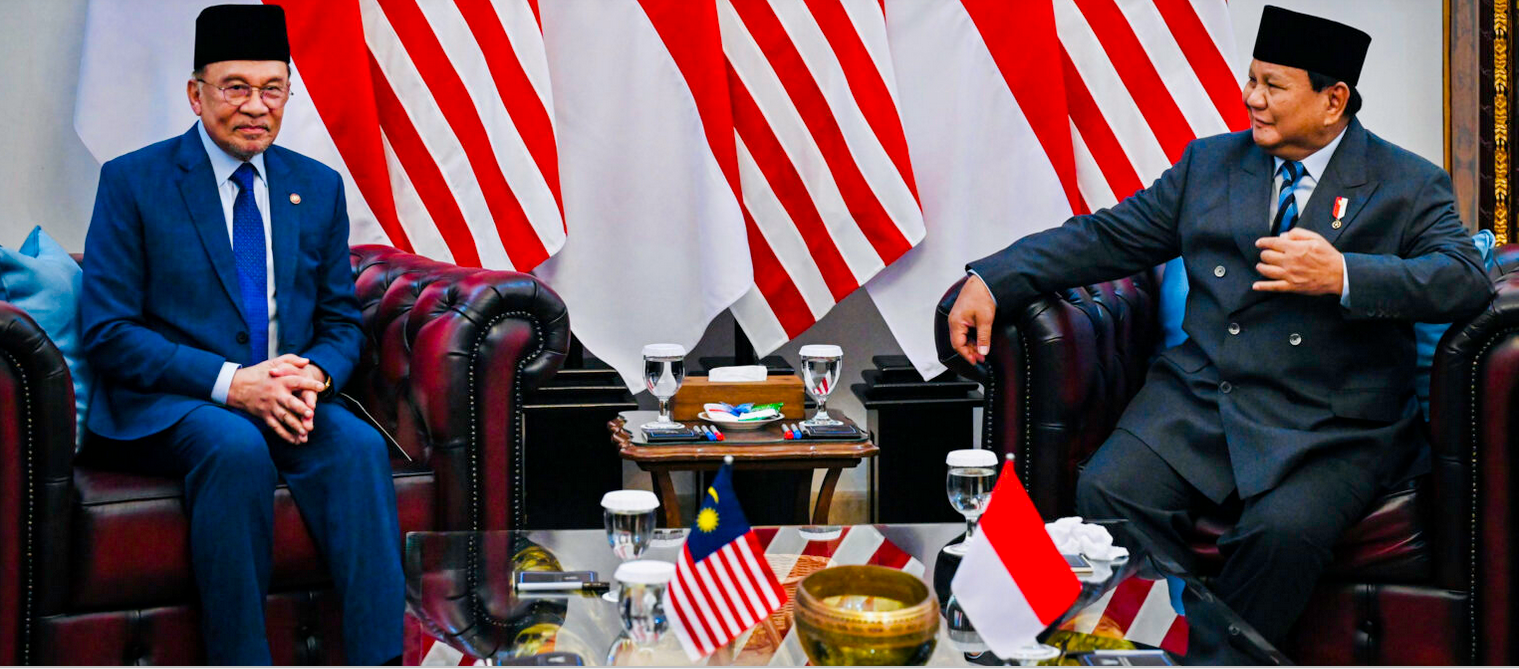Minister: COVID-19 Handling Must be Intensified from Upstream to Downstream

Minister of Health Budi Gunadi Sadikin
Following a spike in COVID-19 cases in various regions, the Government has formulated a number of policies aimed to limit people’s mobility and interaction, particularly in red zone areas to curb the virus transmission.
One of the efforts is by extending the implementation of micro-scale public activity restrictions (PPKM Mikro) for two weeks, starting from 22 June to 5 July 2021 by limiting the movement of people by 75-100 percent in red zone areas.
“We have to handle the upstream side well in order to reduce the pressure on the downstream side. On the upstream side, we must limit people’s mobility through the implementation of PPKM Mikro in order to reduce the spread of the virus and also accelerate the implementation of vaccinations. In downstream, we will focus on improving health services,” said Minister of Health Budi Gunadi Sadikin, Tuesday (22/6) in Jakarta.
According to him, Ministry of Health, supported by the Indonesian National Defense Force (TNI), the National Police (Polri), and regional governments, will continue to increase the speed of vaccine inoculation. Once the vaccination target of 700 thousand doses per day is achieved this month, the speed will be increased to 1 million doses per day starting next month in line with the relaxation of criteria limits and the age of vaccine recipients of above 18 years old, he added.
He went on to say that after prioritizing Phase 1 vaccination drive for health workers in January to February, then Phase 2 for the elderly and public workers from March to June, the Government will open Phase 3 for all Indonesians aged 18 years old and above.
As Phase 3 starts, vaccination coverage and speed will be increased to an average of 1 million doses per day. The Government targets to vaccinate of around 181 million people to achieve herd immunity. More than 23 million people or 12.8 percent of the target have currently received the first shot.
To date, the general public with 18 years of age and above living in Greater Jakarta areas can get vaccinated earlier than the July schedule.
The Minister once again reminded the public that even though they have been completely vaccinated, they still have the possibility of being exposed to the virus.
“It can be seen from the health workers who are still exposed to the virus despite complete vaccination. But almost all of them are asymptomatic and the recovery rate is also very good,” said Budi.
On the downstream side, the Ministry had taken steps to anticipate a spike in cases, referring to previous experiences. These steps include giving instructions to hospitals throughout Indonesia to increase the number of beds and isolation rooms, adding necessary medicines and equipment such as personal protective equipment (PPE), and also adding health workers.
As of Monday (21/6), the total number of occupied beds for COVID-19 patients nationally stands at 57,000. The Ministry then instructed COVID-19 special treatment beds to be increased from 75,000 to 83,000. Assuming all hospitals in the country provide 30 percent of the room capacity to treat COVID-19 patients, the isolation bed capacity for COVID-19 patients can still be increased to 130,000 beds.
In the meantime, to anticipate the shortage of health workers in hospitals, the Ministry in collaboration with the Indonesian Doctors Association (IDI) and the Indonesian National Nurses Association (PPNI) continues to add health worker personnel that are really needed, including post-internship doctors, participants in the Specialist Doctors Education program, participants in the Healthy Nusantara program, graduates of the Health Polytechnic of Ministry of Health, as well as re-recruiting volunteers.
In addition to handling the spike in cases thoroughly from upstream to downstream, the Minister also said that all COVID-19 vaccines used in Indonesia have proven effective in dealing with the COVID-19 variant, especially the new Delta variant.
“The benefits of vaccination have been proven. The public should not hesitate to get vaccinated immediately,” Budi said.
Finally, Budi appealed to the public to continue to remain disciplined in following the health protocols (wearing masks, maintaining distance, and washing hands). The spike in positive cases is due to high mobility of people during past Eid holiday and is also triggered by the new COVID-19 variant of concern that has entered the country.
“This new variant is indeed more contagious, but we can reduce the rate of transmission by complying the health protocols. I appeal to the public to stay at home so that we can protect our family, neighbors, and close related persons from the transmission of COVID-19,” he said. (PR of Ministry Of Health/UN) (EST/MUR)








